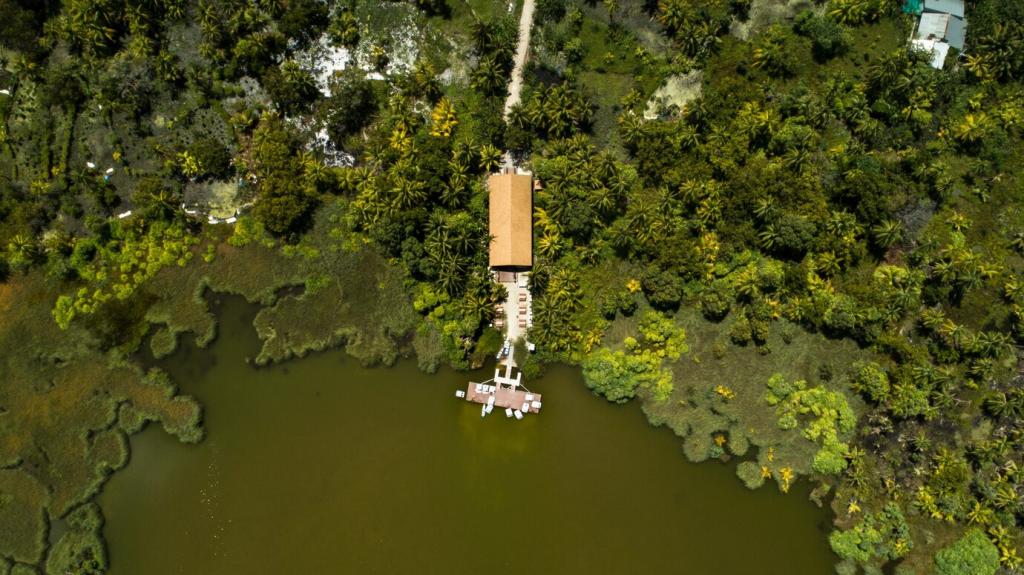How to Spot Genuine Eco Accommodations
Chosen theme: How to Spot Genuine Eco Accommodations. Learn to separate authentic sustainability from slick greenwashing with practical checklists, field-tested stories, and questions you can ask before booking and once you arrive. Share your discoveries and subscribe for more eco-smart travel insights.

Independent audits versus self-declared labels
A self-declared “eco” sticker is easy; a credible audit is not. Ask whether the property undergoes independent verification, how often it is reassessed, and whether corrective actions are tracked. Real programs require proof, not promises. Share your audit questions below.
Recognized programs to look for around the world
Seek respected frameworks like Green Key, EarthCheck, LEED for building performance, GSTC-recognized standards, or B Corp for holistic impact. No single badge guarantees perfection, but credible programs publish criteria publicly. Save this list, and add your regional favorites in the comments.
How to politely request documentation before booking
Email the property asking for a valid certificate, audit summary, or a sustainability report. Genuine eco accommodations are proud to share evidence. Keep it friendly and curious, not confrontational. If they dodge, that’s a signal. Want a template? Subscribe, and we’ll send our vetted example.




Water Stewardship and Waste Systems That Work
Check for low-flow showerheads that still feel pleasant, dual-flush toilets, and aerators on taps. Ask about rainwater harvesting and greywater reuse for gardens. If lawns are lush during drought without explanation, question the source. Community-driven tips on responsible water use are welcome below.
Community, Culture, and Fair Employment
Ask if most staff are from the region, whether training is paid, and how career paths are supported. Properties proud of fair pay will share ranges or certification. A bellhop once told me his hotel funded language classes—small details that reveal deeper commitments. Share your staff stories.


Community, Culture, and Fair Employment
Menus featuring seasonal, local produce are powerful when suppliers are named and distances disclosed. Gift shops should stock regional crafts with artisan credits. Bonus points for long-term contracts and prepayments during low season. Add your favorite community-first examples to inspire fellow readers.
Transparency, Metrics, and Honest Storytelling
Public reports you can actually read and trust
Look for annual sustainability reports with baselines, targets, and third-party verifications. Carbon scopes should be defined; water and waste reductions measured per guest night. If language feels vague or cherry-picked, probe further. Have a report you love? Post it and tell us why.
Data with context, not just feel-good stats
“We saved 10,000 liters of water” means little without occupancy data or weather context. Great reports normalize metrics by room night and season. They show trends over multiple years. Invite properties to share methodologies, and encourage healthy skepticism in the comments.
Owning mistakes and course-correcting
A favorite lodge once admitted its composting failed during monsoon, then piloted covered bays and community pickup. This honesty built trust. Ask brands what didn’t work and what they changed. Subscribe to our newsletter for monthly case studies featuring candid lessons learned.

Your Pre‑Booking Research Toolkit
Ask about independent certifications, water and energy initiatives, community partnerships, and published goals. Request a short example, like last year’s energy reduction percentage. Friendly curiosity opens doors. Want a one-page email script? Subscribe and we’ll deliver it straight to your inbox.
Your Pre‑Booking Research Toolkit
Do gallery images show refill stations, shade structures, and native landscaping—or just a lone bamboo straw? Satellite maps can reveal rooftop solar or rampant lawn irrigation. Compare policies with real images. Share your best detective tricks for spotting authenticity from afar.
On‑Site Red Flags and Green Lights
Back‑of‑house glimpses and candid conversations
If permitted, a quick peek at laundry or kitchen areas reveals serious intent: labeled chemical stations, energy-efficient equipment, and real recycling. Staff who can explain systems with pride are a great sign. What behind-the-scenes details have impressed you? Tell us below.
Quiet cues that signal deep commitment
Native plants buzzing with pollinators, refill stations placed where guests actually need them, and signage that teaches without preaching—these quiet cues matter. Look for maintenance logs and calibration tags on equipment. Share photos of subtle sustainability wins that left you inspired.
Classic greenwashing warning signs to watch for
Beware of vague claims, overuse of rustic aesthetics, and one-off projects promoted like panaceas. If single-use plastics abound while marketing touts zero waste, ask questions. Your polite curiosity pushes standards higher. Subscribe for our evolving greenwashing checklist and help keep the industry honest.
